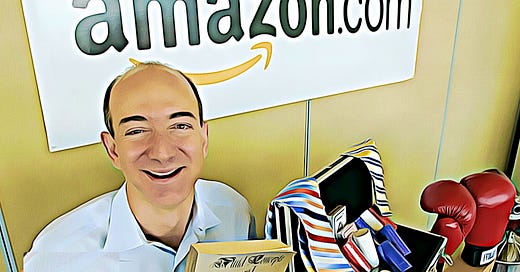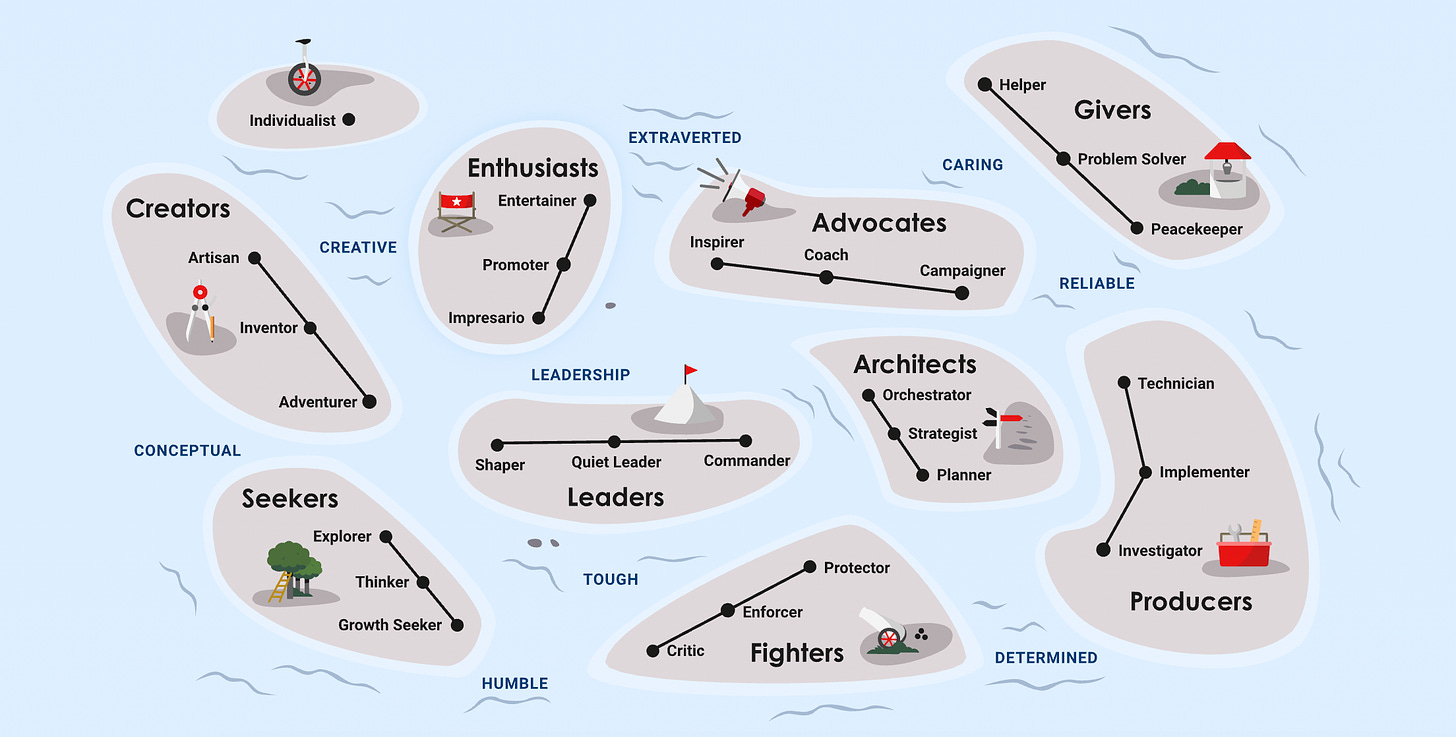Culture study: how Amazon stays the most innovative firm in tech
Inside the innovations engine. ALSO: remote working the cost savings are starting to have an impact
Amazon announced its earnings last week - and saw its share price hit a record high. Announcing that they’d surpassed 200 million Prime members was just one of the milestones that the company was able to celebrate in a blowout performance. The company’s sales - no doubt helped by a captive audience trapped at home in a pandemic - rose by 44%, a growth clip that would seem impossibly high for a 17 year old firm if we hadn’t seen Apple’s revenue grow by 54% two days previously.
The interesting difference between Amazon and many of the tech brands that we’re surrounded with is that much of their innovation comes from within.
For sure we all use multiple products by Google, but the search company bought YouTube, bought Android, bought what became Google Maps, bought Waze, bought Nest, bought their self-driving cars business, bought DoubleClick ads, and also bought lots of things that are now sitting in the where are they now? file like Fitbit and Motorola. Sure we know that Facebook own Instagram (bought in 2012), Whatsapp (bought in 2014) and Oculus (bought in 2014) but their homeground products (remember Poke? Slingshot? Lasso? of course you don’t) have been flops. Even Instagram Stories was stolen from Snapchat.
The big question you might ask about these big tech cultures is ‘if they’re so special how come they don’t create any follow-on hits themselves?’ Tech versions of Pixar they are not, they’re the Maroon 5’s of invention, shipping in the clever ideas of other people to keep them bopping in the app charts. It’s not unfair to characterise these companies as bloated bureaucracies propped up by vastly cash generative ad businesses.
The commercial real estate expert Dror Poleg commented last week that we sometimes look to the examples set by these big firms as a sign of what the smart brains are doing. Poleg was looking at JP Morgan just about agreeing to some degree of hybrid working. The truth of all of these firms is that, despite the external mystique, they are able to avoid decisions of scarcity by their high margins and often make terrible decisions along the way. I’m often emailed by people who work at big tech firms who tell me that their job is a slow-moving bureaucracy overwhelmed with rules and red-tape, in contrast when people from education or local government contact me they are apologetic for how slow their cultures are to evolve. Little do they know how big tech firms share a lot in common with them.
So how do Amazon do it? This week’s podcast is a discussion with long-time Amazon exec Colin Bryar. Along the way we talk through Amazon’s Leadership Principles, how Amazon created products like Kindle and Prime, their recruitment process, and much more.
But there was one thing that really stood out to me and that was the idea of ‘Separable, Single-Threaded Leadership’. As Colin told me Jeff Bezos made a comment one day, ‘The best way to fail at inventing something is by making it somebody’s part-time job’. Bezos realised that the worst part of people’s roles was having to keep dozens (hundreds!) of colleagues in the loop because of co-dependencies. The best way to make people feel empowered by their job was to genuinely empower them - to let them get on with them without having to tell everyone what they were doing all of the time. To that end Bezos decided ‘that if we wanted Amazon to be place where builders can build, we needed to eliminate communication, not encourage it’.
Wow. Think about that. Someone recognising that the worst part of your job is endless video calls and emails stopping you actually doing your job. As Colin puts it, ‘In other words, Jeff’s vision was that we needed to focus on loosely coupled interaction via machines through well-defined APIs rather than via humans through emails and meetings. This would free each team to act autonomously and move faster’.
We’ve heard free thinkers like Cal Newport talking about removing communication as an unproductive tax on working, but this is the first time we’ve recognised that it is the engine to drive innovation. I have no doubt (from people I know who have worked at Amazon) that this doesn’t always work well in practice but as a vision and an articulation of work it seems like a massive, defining difference.
For all of us, thinking of how we could allow teams to work individually and autonomously seems to be a vital way to make workers feel more able to get stuff done.
If you’re interested in hearing from Colin first hand my discussion with him is this week’s podcast (see the links below). Colin’s book, Working Backwards, is the How To guide to do things the Amazon way.
Related: 24 lessons from Bezos’ letters to shareholders
BTW, this doesn’t ignore that Amazon’s historical record for looking after warehouse workers hasn’t been great, which is something that they seem to have recognised as a future barrier to them. (I did a whole podcast on this with the author of Hired, James Bloodsworth)
Hear more about the Amazon approach as Jeff Bezos set about creating the ‘invention machine’.
How does working backwards work in practice? How did Amazon use their principles to invent their most innovative new products?
Listen: Spotify / Apple / website
Like this? Why not share it with your team for a group discussion?
I should have included this in last week’s newsletter - but I was running out of space. The NYT reports on a trend of workers giving it all up to focus on the meaningful things in life
The Basecamp ‘no politics please’ announcement resulted in a third of their company choosing to accept cash settlements to leave last Friday. A remarkable self own for a company that had set out to make believe that it had the answers to workplace culture - next week’s podcast is about this - by all means drop me a line if you’ve got an opinion on it (you can hit Reply)
Google’s earnings call announced that are saving an annualised billion dollars with remote working (that’s from reduced travel, reduced printing for promotional materials etc - that’s without closing offices or downgrading spaces)
The Telegraph also reported that the UK government is starting to see remote working as a way to run government more efficiently (Telegraph article viewed by MSN here). The report suggests that the government is looking for ways to ‘capitalise on the productivity gains identified through our response to the pandemic’
Here’s a Guardian article on the same, as Peter Cheese from the CIPD comments, “There have been mixed messages from the government.”
All of this is consistent with what this newsletter has been saying for twelve months, first will come the visionaries, then will come the money savers. Visionaries will solve for the deficiencies of remote working, money savers won’t….
Adam Grant and Ray Dalio launched a new personality assessment tool called PrinciplesYou - it looks like a hot mess tbh
In other news:
30 times more carcinogenic than cigarette smoke - did you know how toxic real fires were? I have to admit I’d never heard this
The weird microwave attacks linked to Russian sources have now been observed on diplomats on the White House lawn in DC
As of the Weeknd’s latest number 1, Max Martin is within striking distance of John Lennon for the all-time number 2 slot







